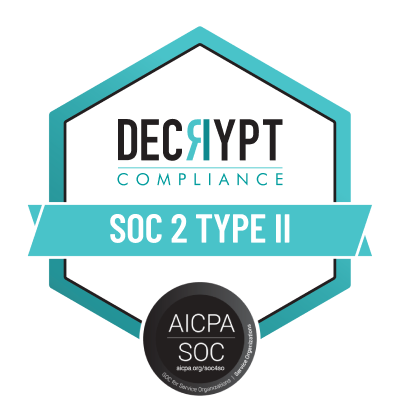How Artificial Intelligence Enhances Web3 Security - Part 2
Decentralized Data, Personalized Experiences, and the Road Ahead for Secure AI in a Web3 World

As the world becomes increasingly reliant on artificial intelligence (AI), concerns about its security implications have grown. AI's reliance on personal data and its potential for generating deceptive deepfakes have raised serious questions. However, there's a groundbreaking solution on the horizon: Web3.
Web3, a decentralized iteration of the internet built on blockchain technology, emerges as the answer to many of these security issues.

Decentralized Storage - The Key to AI Security
In a world where AI-driven threats are becoming more sophisticated, Web3's decentralized storage offers an innovative solution. By storing data across a distributed network, hackers face insurmountable obstacles to accessing and misusing sensitive information. This revolutionary approach marks a new era in data security.
Strengthening AI Security through Web3
Web3 addresses AI security in multiple ways:
- Decentralized Data Storage: AI often depends on centralized databases, making them prime targets for hackers. Web3 employs decentralized storage platforms like IPFS and Filecoin, thwarting data breaches by distributing information across a network of computers.
- Privacy-Preserving AI: AI's use of personal data can lead to misuse. Web3 leverages techniques like differential privacy, enabling AI training without compromising user privacy. This involves adding noise to data to protect individual identities.
- Open Source Code: Web3's open-source nature facilitates vulnerability audits, enhancing the security of AI applications. This openness fosters transparency and accountability, safeguarding users against malicious actors.

AI's Role in the Web3 Ecosystem
As Web3 transforms the digital landscape, AI plays pivotal roles across its layers:
- Intelligent Blockchains: Future blockchains will incorporate AI-driven capacities, enabling predictive transactions and enhancing security. AI-powered consensus protocols will revolutionize how transactions occur, thwarting fraudulent behavior and ensuring scalability.
- Intelligent Protocols: DeFi platforms will see AI-infused lending protocols and market makers, optimizing user experiences and making dynamic decisions based on ML models.
- Intelligent dApps: Next-gen NFTs will evolve beyond static images, exhibiting intelligent behavior based on owners' profiles.
AI and Personalization in Web3
AI takes personalization in Web3 to new heights, offering tailor-made experiences for users. With advanced analysis of user behavior, AI creates personalized content and recommendations, enhancing engagement and making interactions more intuitive.

Solutions Anchored in Cutting-Edge Approaches
- Edge-Based AI Models: A revolutionary approach to combat AI-generated content involves edge-based AI models. These models analyze content accuracy and authenticity in real-time on devices like smartphones or laptops. By promptly detecting potential threats such as fake content or scams, edge-based models empower users to preemptively tackle harmful content.
- Blockchain Traceability: Blockchain technology can be harnessed to trace AI-generated content. This architecture integrates the output layer of large language models (LLMs) or neural networks with a public blockchain, creating an immutable record of both input data and AI-generated output. This transparency discourages manipulation and fosters content verification.

Addressing Challenges and Embracing Solutions
While these solutions hold promise, several challenges must be addressed:
- Scalability: Storing all input-output pairs on a public blockchain might lead to high storage costs and slower processing times. Asynchronous record creation and data pruning strategies can mitigate these concerns.
- Privacy Considerations: Revealing sensitive or personal data on a public blockchain can compromise privacy. Striking a balance between transparency and privacy is crucial.
- Integration Complexities: Integrating neural network output layers with a public blockchain necessitates technical expertise and potential framework adaptations. Overcoming integration hurdles is essential for seamless implementation.
- Latency: Writing input-output pairs onto the blockchain may introduce latency in content delivery. Understanding the trade-off between real-time interaction and blockchain validation is imperative.
- Regulatory Compliance: Legal and regulatory compliance, especially regarding data protection laws like GDPR, must be ensured. Addressing compliance intricacies is vital for the success of these solutions.
The Future Beckons with AI and Web3
Web3's decentralized architecture, when combined with the transformative capabilities of AI, emerges as the bedrock of security in the digital age. As the AI landscape continues to evolve, the integration of Web3's decentralized approach will empower users, protect their data, and reshape the future of technology.
Explore Cyvers’ Cutting-Edge Solutions
For those seeking an AI-powered Web3 solution, Cyvers’ expertise is at your service. Discover our innovative products and tailored marketing strategies, ensuring your journey into the realm of intelligent innovation is a success.
Conclusion
To conclude, as AI shapes Web3, we must foster dialogue, innovation, and responsibility. While the solutions proposed are not exhaustive, they ignite essential conversations about AI-generated content challenges. Together, we can harness AI's power in Web3 for a secure, privacy-respecting digital future. Explore an AI-powered Web3 solution with our experts to embark on this journey.
Next generation threat prevention
Identify patterns and anomalies across blockchains in real-time for proactive mitigation.




.webp)
.webp)
.webp)

.webp)
.webp)